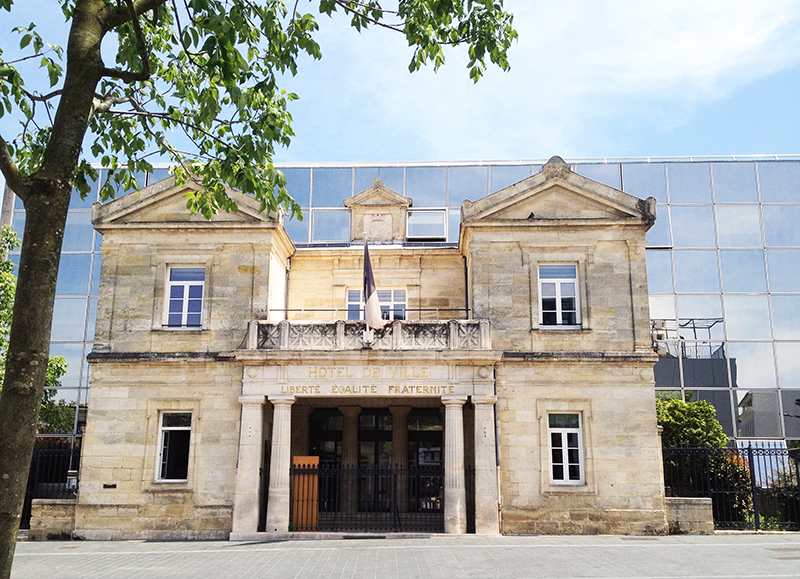Pluriannual Green Investment Plan (PPI/PIP)
The city of Pessac is one of the 28 communes of Bordeaux Métropole, which had a total of 791,958 inhabitants in 2017 (INSEE). Bordeaux Métropole is responsible for urban planning, transport, waste, the economy, housing, leisure and the environment.


Overview of the project
The municipality wished to elaborate a Pluriannual Investment Plan (PIP/PPI in French) for 2020-2026, the total amount of which is €100,000,000. A genuine budgetary management tool, it enables the community to plan all its investments over the duration of the mandate. As part of its commitment to the ecological transition, the municipality goes beyond a strictly budgetary reading by integrating the environmental impact of its actions.
Transforming public action
The municipality has made the ecological transition one of the priorities of the new term of office.
Why a green PIP? The aim is to :
- Highlighting investment expenditure with a significant, sufficient or insufficient environmental impact, in order to then assess the effects and establish, over the course of the term, a trajectory for progress.
- Enable elected officials, residents and municipal staff to measure the impact of the community’s investment choices in a simple, legible and rigorous manner, thus responding to the municipal desire to make public action more understandable and transparent.
An innovative reference system adapted to the local level
This reference system is based on the four aims of the Agenda for Sustainable Solutions in Pessac:
- Living the city better together
- Nature and biodiversity
- Climate
- Responsible modes of production and consumption. Each of these goals is then measured against the UN’s Sustainable Development Goals (SDGs), which represent a universal reference framework.
AFNOR, guaranteeing impartiality
The PIP will be re-evaluated every year in order to take into account the community’s achievements and needs, while at the same time informing everyone of the impact of the actions undertaken on the environment. To give credibility to its approach, the city called on a recognised external service provider, AFNOR, which, through its expertise, assisted the municipality in producing its reference framework. The agency assessed the four goals of Pessac in relation to the Sustainable Development Goals. Interviews were held with the city officials in charge of the projects included in the PIP.
The aim was to determine the challenges of the projects and their implementation practices. At the end of the interviews, AFNOR produced an overall summary and established a rating scale ranging from 0 to 3 in order to measure the impact of the projects (the PIP in its entirety, with a focus on certain major projects of the term of office) on each Sustainable Development Objective.
The aim of the "Green PIP/PPI" project is to carry out, in partnership with AFNOR, an objective evaluation of the ecological impact of the 100 million investment projects registered for the 2020/2026 mandate, based on an impartial, rigorous and recognised methodology, based on the 17 UN Sustainable Development Goals. This methodology will be deployed on the entire municipal budget (investment and operation) from 2022. The project was presented to the Pessac City Council at its public meeting on 30 March 2021.
Ongoing research
03/30/2021 - project still in progress
Key references:
- 17 Sustainable Development Goals (SDGs), a reference framework determined by the UN, each with its own targets and indicators. Each of them has been allocated to one of the four goals of the Sustainable Solutions Agenda of the City of Pessac.
Index from 0 to 3, developed by AFNOR, which reflects the level of the city’s contribution to the various Sustainable Development Goals (SDGs):
- 1/3 Progress to be made
- 2/3 Commitments to be consolidated
- 3/3 Satisfactory action
– Score out of 20: To make the environmental impact assessment more readable, the City has transposed the average score obtained for each of the goals of the Sustainable Solutions Agenda into a score out of 20.
- The total score of the PPI is 13.2 / 20
- The 4 goals of the Pessac Sustainable Solutions Agenda (Local Agenda 21) bring together the SDGs selected to evaluate the impact of the works, renovation and construction projects included in the PPI of the mandate
- LIVING BETTER TOGETHER (SDGs 1, 4, 5, 8, 10, 11, and 16): 12.93/20
- NATURE AND BIODIVERSITY (SDG6 14 and 15): 14/20
- CLIMATE (SDG 7 and 13): 15/20
- RESPONSIBLE / SUSTAINABLE PRODUCTION AND CONSUMPTION (SDGs 2, 3, and 12): 10.87/20
- Very encouraging results with sources of satisfaction, particularly in the areas of education, preservation of biodiversity and the fight against climate change
- Areas for progress on poverty, gender equality, responsible consumption and production
The evaluation provides an initial assessment of the ecological impact of each action, and also allows us to set out on a path of progress by adjusting the work programme initially planned to integrate the virtuous orientations of the SDGs.
Fully funded by the City of Pessac
organisation
With 65,000 inhabitants, Pessac is the 3rd largest town in the Gironde after Bordeaux and Mérignac and the 7th largest town in the Nouvelle-Aquitaine region. As the south-western gateway to the Bordeaux metropolis, Pessac benefits from a privileged geographical location which makes it accessible by transport.
The presence on its territory of part of the Bordeaux University Hospital, and the university campus identifies Pessac as a health city oriented towards the world of innovation. Pessac is an attractive city for economic players, but also for families.
Indeed, with a wooded heritage – parks, forests, vineyards – which increases over the years, Pessac is appreciated for its quality of life. With its 18 districts accessible by public transport, Pessac is a city of villages. Each with its own commercial centre and local services, the concept of “City of a Quarter of an Hour” takes on its full meaning. Preserving the balance between town and country, while building the town of tomorrow is the guiding principle of the municipal team.
To meet this challenge, four pillars will guide municipal policy over the next six years:
- Making a success of the ecological transition: each project, each action carried out must include the ecological dimension. We must take initiatives and set an example in all these areas: local economy, nature, health, mobility and climate, living environment.
- Guaranteeing security and public tranquillity: Pessac must cultivate its vocation as a city where life is good, and where everyone feels protected. Security, republican authority, cleanliness, and the living environment are all everyday issues that cannot be put on the back burner.
- Promoting equal opportunities and social cohesion: as a city of young people and families, Pessac has many existing assets that we must develop in response to expectations. But the value of a society is measured in particular by the attention it pays to the most vulnerable. Pessac must continue in this direction, particularly with regard to our elderly.
- Promote activity: promoting and supporting those who participate in the collective success must be the heart of our economic policy. Preserving our local economic and commercial fabric “this town of villages”, making Pessac an economic and innovation territory in the field of health and the smart city, promoting the wine and heritage assets present in the heart of the town; these are all axes to be implemented.
It is a need for balance and equity that is expressed on a daily basis between families and between generations, between neighbourhoods.
in collaboration


